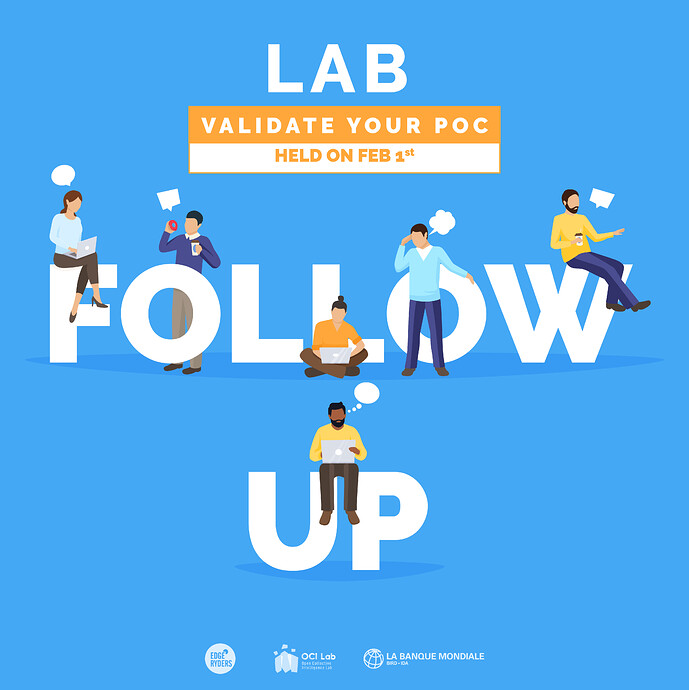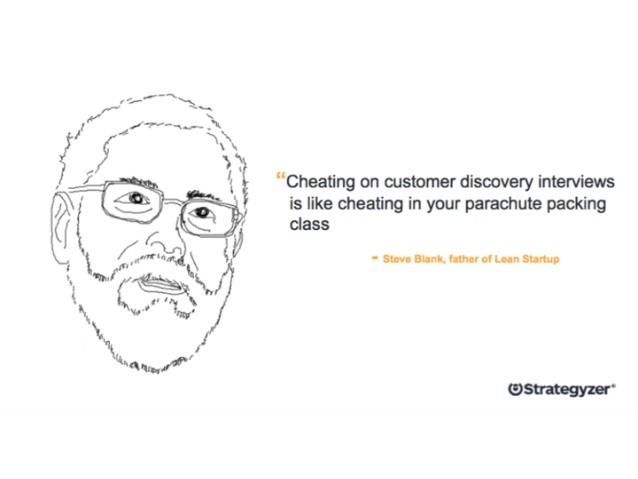On the 1st of February, OCI LAB Online incubator hosted the forth online lab: “Validate your POC/Customer validation” with the assistance of OCI Lab Mentor Dr. @Wajdibr an associate professor of management and entrepreneurship at the University of Carthage.
During this lab, Dr.Wajdi gave a detailed presentation illustrated by various examples to help a project leader validate their proof of concept (POC) having their customer validation.
Around 5 p.m, the participants were asked by the moderator @khouloud.ouesleti to do the check-in as usual via the zoom conference room by writing their full names, countries, and projects in the chat channel.
At first, Dr.Wajdi started by highlighting the importance of customer development as it is about “putting the Founders in continuous contact and engagement with customers.” according to Steve Blank. It is defined as a four steps framework:
- have identified a need(s) that customers have,
- built the right product to satisfy that customer’s need(s),
- tested the correct methods for acquiring and converting customers,
- deployed the right resources in the organization to meet the demand for the product.
Mainly, the customer development process is an iterative approach that leads to an execution phase.
Knowing that customer discovery allows the project leader to turn hypothesis into facts which is a basic step.
Moreover, he displayed a list of DOs and Don’ts of how to proceed with the customer discovery phase. Making surveys, questionnaires, market study, and depending on your own experience isn’t an effective way. Indeed, you should observe the customer, and put yourself in the customer’s shoes and assure interviews to get insights and the deep motivations behind their behavior.
There are two types of interviews: One to assess the problem, and the other is to evaluate the strength of the proposed solution. As for the questions, it ought to be detective questions that are also open-ended and nonspecific about your idea.
Concerning how to talk to the users, Mr.Wajdi introduced the concept of “Mom Test” which is a set of simple rules for crafting the right questions that even your mom can’t lie to you about.
As for the most efficient methods for conducting an interview, it’s preferred if it’s in person, a video conference, or a phone call.
Next, he shared a few best practices concerning the customer interview:
- Adopt a beginner’s mindset
- Listen more than you talk
- Get facts not opinions
- Ask “why” to get real motivations
- Remember: the goal is to learn, not sell
- Don’t mention solutions too early
- Follow up
- Always open doors at the end
Last but not least, he stated that the answer to the question: “ Who to ask?” are early adopters and early evangelists defined by Steve Blank as the following: “Early-Evangelist are Early adopters of your product/service “willing to take a risk on your startup’s product or service because they can envision its potential to solve a critical and immediate problem—and they have the budget to purchase it.”
As for where to find people to interview, it can be through social media, fairs, exhibitions, shows, conferences…etc
Finally, he explained how to debrief by focusing on key-insights regarding research objectives and implications for future interviews.
Offline tasks: here
Lab’s material: thepresentation & some resources
Q & A
Q: @saif.eddine.laalej
Should we focus more on the customer or the end User?
A: It depends, the end user sometimes is not the one who’s going to pay for the product/service, but they may be important in making certain decisions. It still depends on your product/service you’re selling.
Q: @Mohsen
Should we talk to them about our competitors?
A: It’s not really interesting to talk about your competitors at this certain phase.
Q: @saif.eddine.laalej
Should we sell the product or the story behind ?
A: No, not at this stage. For now, you should try to figure out if you have an actual problem and see if you can solve it. The story behind is useful if you are talking with early evangelists.
Q: @ayari.taha
I will have a meeting with the board of my clients, shall I present to them the technical side of the project?
A: No , this is what you should not do, just talk abt the value proposition and focus on how to solve the problem.



